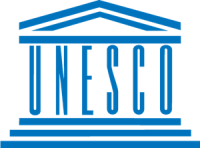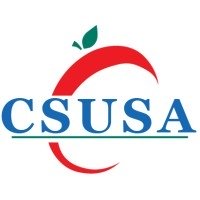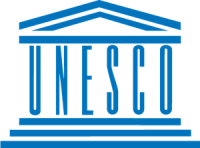- Afghanistan
- Åland Islands
- Albania
- Algeria
- American Samoa
- Andorra
- Angola
- Anguilla
- Antarctica
- Antigua and Barbuda
- Argentina
- Armenia
- Aruba
- Australia
- Austria
- Azerbaijan
- Bahamas
- Bahrain
- Bangladesh
- Barbados
- Belarus
- Belgium
- Belize
- Benin
- Bermuda
- Bhutan
- Bolivia
- Bonaire, Sint Eustatius, and Saba
- Bosnia and Herzegovina
- Botswana
- Bouvet Island
- Brazil
- British Indian Ocean Territory
- British Virgin Islands
- Brunei
- Bulgaria
- Burkina Faso
- Burundi
- Cambodia
- Cameroon
- Canada
- Cape Verde
- Cayman Islands
- Central African Republic
- Chad
- Chile
- China
- Christmas Island
- Cocos [Keeling] Islands
- Colombia
- Comoros
- Cook Islands
- Costa Rica
- Croatia
- Cuba
- Curaçao
- Cyprus
- Czech Republic
- Congo - Kinshasa
- Denmark
- Djibouti
- Dominica
- Dominican Republic
- Timor-Leste
- Ecuador
- Egypt
- El Salvador
- Equatorial Guinea
- Eritrea
- Estonia
- Ethiopia
- Falkland Islands
- Faroe Islands
- Fiji
- Finland
- France
- French Guiana
- French Polynesia
- French Southern Territories
- Gabon
- Gambia
- Georgia
- Germany
- Ghana
- Gibraltar
- Greece
- Greenland
- Grenada
- Guadeloupe
- Guam
- Guatemala
- Guernsey
- Guinea
- Guinea-Bissau
- Guyana
- Haiti
- Heard Island and McDonald Islands
- Honduras
- Hong Kong SAR China
- Hungary
- Iceland
- India
- Indonesia
- Iran
- Iraq
- Ireland
- Isle of Man
- Israel
- Italy
- Côte d’Ivoire
- Jamaica
- Japan
- Jersey
- Jordan
- Kazakhstan
- Kenya
- Kiribati
- Kosovo
- Kuwait
- Kyrgyzstan
- Laos
- Latvia
- Lebanon
- Lesotho
- Liberia
- Libya
- Liechtenstein
- Lithuania
- Luxembourg
- Macau SAR China
- Macedonia
- Madagascar
- Malawi
- Malaysia
- Maldives
- Mali
- Malta
- Marshall Islands
- Martinique
- Mauritania
- Mauritius
- Mayotte
- Mexico
- Micronesia
- Moldova
- Monaco
- Mongolia
- Montenegro
- Montserrat
- Morocco
- Mozambique
- Myanmar [Burma]
- Namibia
- Nauru
- Nepal
- Netherlands
- Netherlands Antilles
- New Caledonia
- New Zealand
- Nicaragua
- Niger
- Nigeria
- Niue
- Norfolk Island
- North Korea
- Northern Mariana Islands
- Norway
- Oman
- Pakistan
- Palau
- Palestinian Territories
- Panama
- Papua New Guinea
- Paraguay
- Peru
- Philippines
- Pitcairn Islands
- Poland
- Portugal
- Puerto Rico
- Qatar
- Congo - Brazzaville
- Réunion
- Romania
- Russia
- Rwanda
- Saint Barthélemy
- Saint Helena
- Saint Kitts and Nevis
- Saint Lucia
- Saint Martin
- Saint Pierre and Miquelon
- Saint Vincent and the Grenadines
- Samoa
- San Marino
- São Tomé and Príncipe
- Saudi Arabia
- Senegal
- Serbia
- Serbia and Montenegro
- Seychelles
- Sierra Leone
- Singapore
- Sint Maarten
- Slovakia
- Slovenia
- Solomon Islands
- Somalia
- South Africa
- South Georgia and the South Sandwich Islands
- South Korea
- South Sudan
- Spain
- Sri Lanka
- Sudan
- Suriname
- Svalbard and Jan Mayen
- Swaziland
- Sweden
- Switzerland
- Syria
- Taiwan
- Tajikistan
- Tanzania
- Thailand
- Togo
- Tokelau
- Tonga
- Trinidad and Tobago
- Tunisia
- Turkey
- Turkmenistan
- Turks and Caicos Islands
- Tuvalu
- U.S. Virgin Islands
- Uganda
- Ukraine
- United Arab Emirates
- United Kingdom
- United States
- U.S. Minor Outlying Islands
- Uruguay
- Uzbekistan
- Vanuatu
- Vatican City
- Venezuela
- Vietnam
- Wallis and Futuna
- Western Sahara
- Yemen
- Zambia
- Zimbabwe
Project Officer (Education)

Project Officer (Education)
Job Overview
Kabul, Kabul
Full Time Job
112549
11 months ago
JamesMary
292
Job Description
OVERVIEW OF THE FUNCTIONS OF THE POST
Since the coming to power of the de facto authorities in Afghanistan in August 2021, UNESCO has conducted a comprehensive reprogramming exercise to align the “Better Education Systems for Afghanistan’s Future†(BESAF) interventions, which originally commenced in 2018, with the guidelines of the donor, with the current educational needs in the country, and the priorities identified within the UN Transitional Engagement Framework (TEF) for Afghanistan, and the Afghanistan Education Sector Transitional Framework (AESTF). Interventions within the BESAF programme will have a renewed focus to support teachers, with a view to increasing quality of teaching and learning.
There is also a need to support the tertiary education sub-sector. With UNESCO’s mandate on technical and vocational education and training (TVET) and higher education, UNESCO is to conduct an assessment on the needs of the tertiary education sub-sector through consultations and desk reviews, and to provide necessary interventions, with a view to support the continuity of education, particularly for females, in providing human resources necessary for the development of the country.
Gender equality is important across all the reprogrammed interventions. UNESCO will continue to attach great importance of gender equality in the interventions, particularly for girls and women in Afghanistan.
Under the overall authority of the Director and Representative of UNESCO to Afghanistan, and the direct supervision of Head of Education Unit of UNESCO Office in Afghanistan, the incumbent will be responsible for the management and implementation of the portfolio on education, particularly teacher support and tertiary education, including the management of the relevant project team.
Long Description
1. Project Implementation
Finalize the operational plan in consultation with stakeholders and UNESCO.
Supervise administrative matters concerning the activities of the project, including development of terms of reference, contract and financial management.
Provide overall coordination of the project by liaising with the main counterparts and ensure regular communication and consultation with stakeholders and UNESCO staff, including UNESCO Headquarters, UNESCO’s Asia and Pacific Regional Bureau for Education, and other relevant UNESCO institutes or affiliates to implement project activities in a high quality and timely manner.
Organize and coordinate seminars, conferences, consultation meetings and other activities for diverse target groups according to the approved project work plans and prepare and document minutes of key internal and external meetings.
Work with the Head of Education Unit to maintain active presence in meetings and events with donors and international partners such as other UN entities and NGOs.
2. Technical Assistance
Provide necessary assessments, technical input and policy advice to project areas relating to quality of education, particularly teacher support and tertiary education.
Keep abreast of the education sector development in Afghanistan and in the region and identify best practices to facilitate implementation of the project.
Support the capacity building of relevant staff from the project team and, if the environment allows, relevant stakeholders implementing the project activities with UNESCO.
Long Description
3. Monitoring, Reporting and Communications
Develop a monitoring and evaluation plan as well as a communication plan for the project.
Periodically review and refine project activities and adjust programmatic and financial plans as necessary.
Analyze, edit and compile project documentation and prepare briefing papers, website articles, and other supporting documents for internal use, particularly with a view to making strategic decisions and adding technical value and input to project activities.
Prepare periodic narrative reporting to the donor and liaise with UNESCO Headquarters to ensure that periodic financial reporting is submitted to the donor in a timely manner.
4. Provide input to strategic planning of interventions of UNESCO Office in Afghanistan and resource mobilization initiatives, bringing in experience gained from the project.
COMPETENCIES (Core / Managerial)
Communication (C)
Accountability (C)
Innovation (C)
Knowledge sharing and continuous improvement (C)
Planning and organizing (C)
Results focus (C)
Teamwork (C)
Professionalism (C)
-For detailed information, please consult the UNESCO Competency Framework.
REQUIRED QUALIFICATIONS
Education
Advanced university degree (Masters or equivalent) in the field of education, social sciences, development studies or related area.
Work Experience
Minimum four years of relevant work experience in education, preferably relating to teacher professional development, technical and vocational education and training, and higher education;
Previous work experience in developing countries or crisis-affected contexts
Long Description
Skills/Competencies
Excellent understanding of development partners’ expectations and trends in the education sector.
Excellent project management skills, including results-based management, financial management, monitoring, evaluation and reporting.
Strong sensitivity and adaptability in post conflict countries and diversity (culture, gender, religion, race and nationality).
Integrity, reliability and sense of commitment in the execution of duties.
Good analytical and problem solving skills.
Ability to build and maintain partnerships.
Ability to work under pressure, to manage heavy workloads and to meet tight deadlines, paying close attention to detail and quality of work.
Strong IT skills including good knowledge of standard office software and online collaboration tools.
Languages
Excellent knowledge (spoken and written) of English.
DESIRABLE QUALIFICATIONS
Education
Advanced university degree (PhD) in the field of education, social sciences, development studies or related area.
Work Experience
At least two years of relevant work experience acquired at international level in the field of education.
Experience in managing projects on teacher professional development, technical and vocational education and training, and higher education.
Experience in the UN.
Experience in resource mobilization and development of project proposals for donors.
Skills/Competencies
Knowledge of UNESCO’s mission and action in the position’s field.
Languages
Knowledge of the national languages of Afghanistan (Dari and/or Pashto).
BENEFITS AND ENTITLEMENTS
UNESCO’s salaries consist of a basic salary and other benefits which may include if applicable: 30 days annual leave, family allowance, medical insurance, pension plan etc
Job ID: 112549
Tags
Similar Jobs


Disney Company
Full Time JobProject officer (education) Project officer (education)
Individuals assigned to the Gardener position are responsible for providing on-g...


Charter Schools USA
Full Time JobProject officer (education) Project officer (education)
ESSENTIAL DUTIES AND RESPONSIBILITIESFacilitate and monitor the following areas ...


Charter Schools USA
Part Time JobProject officer (education) Project officer (education)
Clean assigned areas:Interior - Hallways, Restrooms, Offices, Classrooms, Multi-...


Charter Schools USA
Full Time JobProject officer (education) Project officer (education)
ESSENTIAL DUTIES AND RESPONSIBILITIESClean assigned areas: Interior - Hallw...





